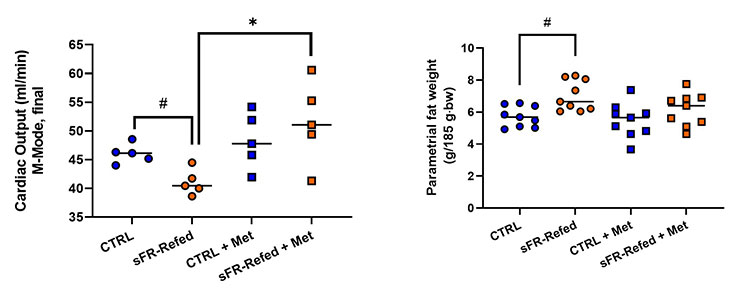- Membership & Community
-
Publications & News
- Physiology Journals
-
Newsroom
-
The Physiologist Magazine
- 2019
- 2020
- 2021
- 2022
- 2023
- 2024
- In Depth
-
Mentoring Forum
- Net Worth
- Take Care
- You … In Charge
- Work. It. Out.
- Working Off-site
- Location, Location, Location?
- Student Support
- Progressing to Postdoc
- Relationship Building
- Let’s Get It Started
- What Do We Value?
- It’s a Postdoc Life
- Coronavirus Contributions
- Creative Communications
- Selection Process
- Conference Connections
- Postdoc Appreciation
- Research Rewards
- Focus on Teaching
- Industry Insights
- Balance Beam
- Post Postdoc
- If You Build It
- Talk It Through
- Forward Bound
- I’ve Earned My PhD. Now What?
- University Life
- Tips for Trainees
- Time Travel
- Prepare Now for the Career You Want
- Landing a Postdoctoral Researcher Position
- Becoming a Physician-Scientist
- Mastering the Art of Science Communication
- Setting Yourself Up for Success in the Lab
- From Postdoc to Professor: Key Strategies for Success
-
Policy IQ
- Policy IQ—2023 in Review: How APS Advocated on Behalf of Physiologists
- Policy IQ—Supporting Equitable Research
- NIH's Road Map to a Better Postdoc Experience
- The Career Path to Science Advocacy
- Culture of Safety: Stopping Sexual Misconduct
- Physiologists Return to Capitol Hill
- Tips for Scientists to Communicate about Animal Research
- Science Advocacy in a New Political Landscape
-
Publish with Polish
- Publish with Polish
- The Layers of Open Science
- Take Your Content From Meeting to Manuscript
- APS Journals to Highlight Women’s Health Research
- What Subscribe to Open Means for APS Members
- The 5 Pillars of Publish with Purpose
- 3 Types of Metadata Researchers Should Know About
- Navigating Open Access and New Licensing Options
- Under the Microscope
- Mentoring Q&A
- Evolution
- Baseline by Scott Steen, CAE, FASAE
- 2025
- Find Us on Social Media
-
The Physiologist Magazine
-
Professional Development
-
Meetings & Events
-
American Physiology Summit
- #APS2024 Overview
- Abstracts
- Awards at the Summit
- Award Lectures
- Career Networking Lunch Form
- Dates and Deadlines
- Advocate for Health Research Funding
- Hotel Information
- Industry Partners
- Keynote Speaker—James Rothman, PhD
- Keynote Speaker—George Brooks, PhD, FAPS
- Keynote Speaker—Holly Ingraham, PhD
- Mobile App
- NIH and NSF Program Officer Panel Discussion Form
- Physical Poster Information
- PhysioHub
- Pre-Summit Events
- Registration
- Section & Group Banquet Tickets
- Social Events
- Speaker Audiovisual Instructions
- Summit FAQs
- Summit Newsroom
- Undergraduate Program Book
- Travel & Transportation
- Liability Waiver
- Industry Partners
- Martin Frank Diversity Travel Award Orientation Agenda
- Martin Frank Diversity Travel Award Networking Luncheon Agenda
- Women in Physiology Networking Event Agenda
-
2023
- APS 2023 Call for Proposals
- Shocklogic Test
- Team 2023 Task Force
- Shaping the Summit
- Schedule at a Glance
- Pre-Summit Events
- Pre-Summit Center for Physiology Education Workshop Registration
- Section & Groups Banquet Tickets
- Pre-Summit Center for Physiology Education Workshop
- Press Registration
- Meet the Organizers
- Keynote Speaker—Terrie Williams, PhD
- Keynote Speaker—David Julius, PhD
- Industry Workshop Information
- Important Dates and Deadlines
- Hotel Information
- Distinguished Lecturers
- Building APS 2023
- Awards at the Summit
- American Physiology Summit Program
- 2024
- Scientific Integrity Policy
- 2026 American Physiology Summit
- Joseph Erlanger: Pioneering Nerve Research and APS Leadership
- From Concept to Classroom
- New Trends in Sex Differences and Women’s Health Research
- Webinars
- Related Meetings
- Future APS Conferences
- Conference Policies
-
American Physiology Summit
- APS Awards
-
Career & Professional Development
-
Career Gateway
-
Resources
- Transcript—Leading Through Conflict and Difficult Conversations
- Transcript—Managing Conflict with Colleagues
- Transcript—Leading a Team Through Conflict
- Transcript—Providing Difficult Feedback
- Transcript—Team Dynamics and Culture Primer
- Transcript—Building a Team
- Transcript—Leading a Team Assigned to You
- Transcript—Creating a Team Culture
-
Resources
- Career Navigator
- Center for Physiology Education
- Physiology Job Board
- APS Graduate Physiology & Biomedical Science Catalog
-
Career Gateway
-
Meetings & Events
-
Advocacy & Resources
- Policy Areas
-
Resources
- Researcher Resources
- Educator Resources
- Trainee Resources
- Student Resources
-
APS Graduate Physiology & Biomedical Science Catalog
- Des Moines University
- East Tennessee State University
- George Washington University
- Mayo Clinic Graduate School of Biomedical Sciences—Biomedical Engineering & Physiology
- Michigan State University
- New York Medical College
- Nova Southeastern University
- Pennsylvania State University
- Texas A&M University
- Texas A&M University Medical Physiology
- Stony Brook University
- The University of Iowa
- University of Alabama at Birmingham
- University at Buffalo
- University of Colorado
- University of Michigan
- University of Minnesota
- University of Missouri-Biomedical Sciences
- University of Nebraska Medical Center
- University of Nevada, Reno
- University of South Carolina School of Medicine
- University of Tennessee Health Science Center (UTHSC)
- University of Texas Health Science Center
- Virginia Commonwealth University
- Wayne State University
- Physiology Department Catalog Submission Form
- Boston University
- Women's Health Research Initiative
- Career Gateway
- Diversity, Equity & Inclusion
- Advocate for Science
- About APS
Animals receiving metformin after severe food restriction exhibited better heart health

Long Beach, Calif. (April 21, 2023)—New research results suggest that the widely used diabetes drug metformin may be beneficial for recovering from short periods of severe food insecurity or anorexia. Researchers will present their work this week at the American Physiology Summit, the flagship annual meeting of the American Physiological Society (APS), in Long Beach, California.
Unlike modest food restriction, which is beneficial to overall metabolic health, even short periods of severe food restriction can have long-lasting health effects. It is estimated that 1 to 4% of women will experience severe food intake reduction from the eating disorder anorexia nervosa during their lifetime, and just under 4% of households in the U.S. are estimated to experience periods of severe food restriction due to food insecurity each year.
“Although it is well known that starvation or severely reduced diets can damage organs such as the heart and kidney, scientists don’t understand the underlying molecular causes for the damage, whether it persists and whether it can be reversed,” said research team leader Carolyn Ecelbarger, PhD, an associate professor of medicine from Georgetown University in Washington, D.C. “The hope is that we may be able to intervene, potentially even in a later time frame, and short-circuit the development of chronic disease and organ injury.”
Using a rat model to study the health effects of short periods of severe caloric restriction, the researchers found that a severe reduction in food intake lasting just two weeks caused damage to the heart and kidneys that appeared to be irreversible even after body weight is restored. During a two-month refeeding period during which rats could eat as much as they wanted, some rats also developed signs of prediabetes, such as increased abdominal obesity.
To test whether any of the negative effects from reduced food consumption could be reversed, some rats received metformin for five weeks during a refeeding period. These rats showed reduced abdominal obesity and improvements in some measures of heart health, including cardiac output, which indicates how much blood is pumped out of the heart with each beat.

“This strategy could have the potential to positively affect enormous numbers of individuals,” Ecelbarger said. “However, more work is needed to find the best timing and most effective doses for treatment. We are also exploring other drugs, such as [Food and Drug Administration]-approved blood pressure medications.”
NOTE TO JOURNALISTS: The American Physiology Summit will be held April 20–23, 2023, in Long Beach, California. To schedule an interview with the researchers, conference organizers or presenters, contact APS Media Relations or call 301.634.7314. Find more highlights from the meeting in our Summit Newsroom.
Physiology is a broad area of scientific inquiry that focuses on how molecules, cells, tissues and organs function in health and disease. The American Physiological Society connects a global, multidisciplinary community of more than 10,000 biomedical scientists and educators as part of its mission to advance scientific discovery, understand life and improve health. The Society drives collaboration and spotlights scientific discoveries through its 16 scholarly journals and programming that support researchers and educators in their work.
Related Content
- APS Members Elect New Leaders for 2025–2026
- Sweat Rate Calculator Blocks Heat Illness, Boosts Athletic Performance
- Kettlebell Training May Help Maintain Muscle Strength in Older Adults
- Regular Exercise Prevents Damage DNA Damage with Aging
- Contracting RSV Before Age 2 Can Cause Long-term Lung Changes and Impairment
- Acetaminophen May Be Less Heart-safe than Previously Thought
- COVID-19 Resources Archive
Contact Us
For questions, comments or to share your story ideas, email us.

